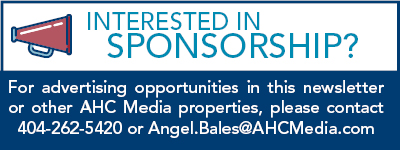Helicopter Parents Routinely Interfere in Doctor-Teen Patient Relationship
October 13th, 2016
ANN ARBOR, MI – Do you find it difficult to have a one-on-one conversation with your teenage patients because of the helicopter parents hovering nearby?
If so, you are far from alone.
A new national poll suggests that just 34% percent of parents let their teen discuss health concerns privately with a doctor without them in the room. The percentage who reported that their teens can complete their health history form independently is even lower, at less than 10. Most don’t even consult with the child when filling out the form.
The C.S. Mott Children's Hospital National Poll on Children's Health at the University of Michigan includes a nationally-representative group of parents of teens ages 13-18.
"The majority of parents are managing teens' health care visits, and their teens may be missing out on valuable opportunities to learn how to take ownership of their own health," explained Sarah J. Clark, MPH, associate director of the C.S. Mott Children's Hospital National Poll on Children's Health.
"Having teens take the lead in responsibilities like filling out their own paperwork, describing their health problems, and asking questions during adolescence helps them gain experience and confidence in managing their health,” Clark said. “Speaking with the doctor privately is important, not only to give teens a chance to disclose confidential information, but also to provide the opportunity for them to be an active participant in their own health care, without a parent taking over."
While nearly 40% of parents responding to the survey say that they alone ask questions about health issues, only 15% say their teen would independently share physical or emotional problems with the doctor.
"Parents' top reason for handling different aspects of the healthcare visit is that their teen would not be comfortable talking about these subjects – which may stem from the fact that they aren't getting much practice," Clark notes.
The survey group urges parents to help their child become more independent at health visits by writing down any health problems or questions they have and then taking the lead in talking to the physician. The surveyors also say that teens should check in at the registration themselves and fill out forms as much as possible.



